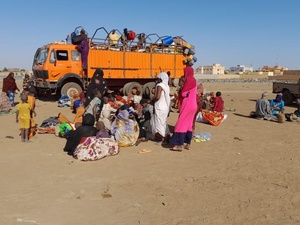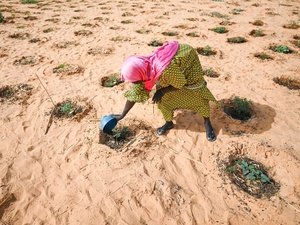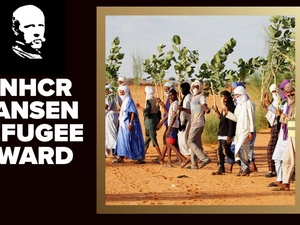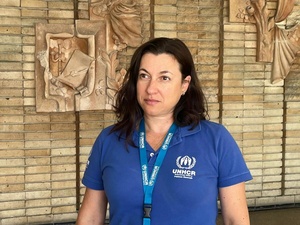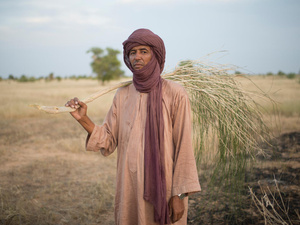UNHCR hails Mauritania's new national refugee law
UNHCR hails Mauritania's new national refugee law

Malian refugee children marching to school in Mauritania's former M'Berra camp. Many of them have either gone home or settled among the local population.
GENEVA, Aug 31 (UNHCR) - The United Nations High Commissioner for Refugees has congratulated Mauritania for becoming the first country in North Africa to adopt a national refugee law.
In a letter sent to the Mauritanian President, Maaouye Ould Sidi Ahmed Taya, High Commissioner Ruud Lubbers said the law would "pave the way for the establishment of a national legal framework for the protection of refugees and returnees, and national asylum structures that can assume responsibility for managing refugee affairs in Mauritania."
This new piece of legislation is the result of three years of close cooperation between the refugee agency and the Mauritanian authorities, during which UNHCR Nouakchott organised a series of training workshops and provided the government with advice and technical expertise on all refugee matters. UNHCR also took part in human rights seminars with other UN agencies, non-governmental organisations and the Mauritanian authorities.
"The whole process was a vast effort in capacity-building," said Hamdi Bukhari, who was UNHCR Representative in Mauritania between 2001 and April 2004. "Mauritania has played an exemplary role in welcoming refugees, and this law is another step forward for all refugees in Mauritania, as well as a model for other countries in the region."
With a population of around 2.5 million people, Mauritania is hosting some 30,000 refugees on its territory. The vast majority are Saharawi, who fled the conflict in neighbouring Western Sahara as long ago as 1976. Many have settled in the towns of Zouerat and Nouadibouh in the north of Mauritania, where they have close tribal and family connections. After almost three decades in exile, they are waiting for a resolution to the standoff in Western Sahara that will allow them to return to their homes in the Sahara desert.
Mauritania is also hosting refugees from Sierra Leone, Liberia and Côte d'Ivoire, as well as a few thousand refugees from Mali. Most Malian refugees, however, have now repatriated with the help of UNHCR.
Mauritania has been a signatory of the 1951 Refugee Convention and 1967 Protocol since May 1987, and with the adoption of this new law, becomes the first country in the region to have a national legal framework for refugee issues. Morocco, Tunisia and Algeria have signed the 1951 refugee Convention, but have not so far drafted a national law. Libya is not a signatory of the Convention.


